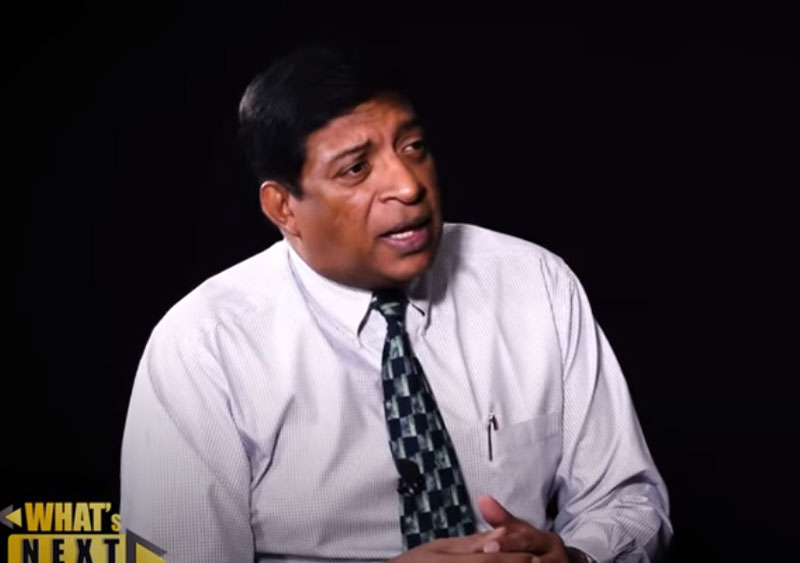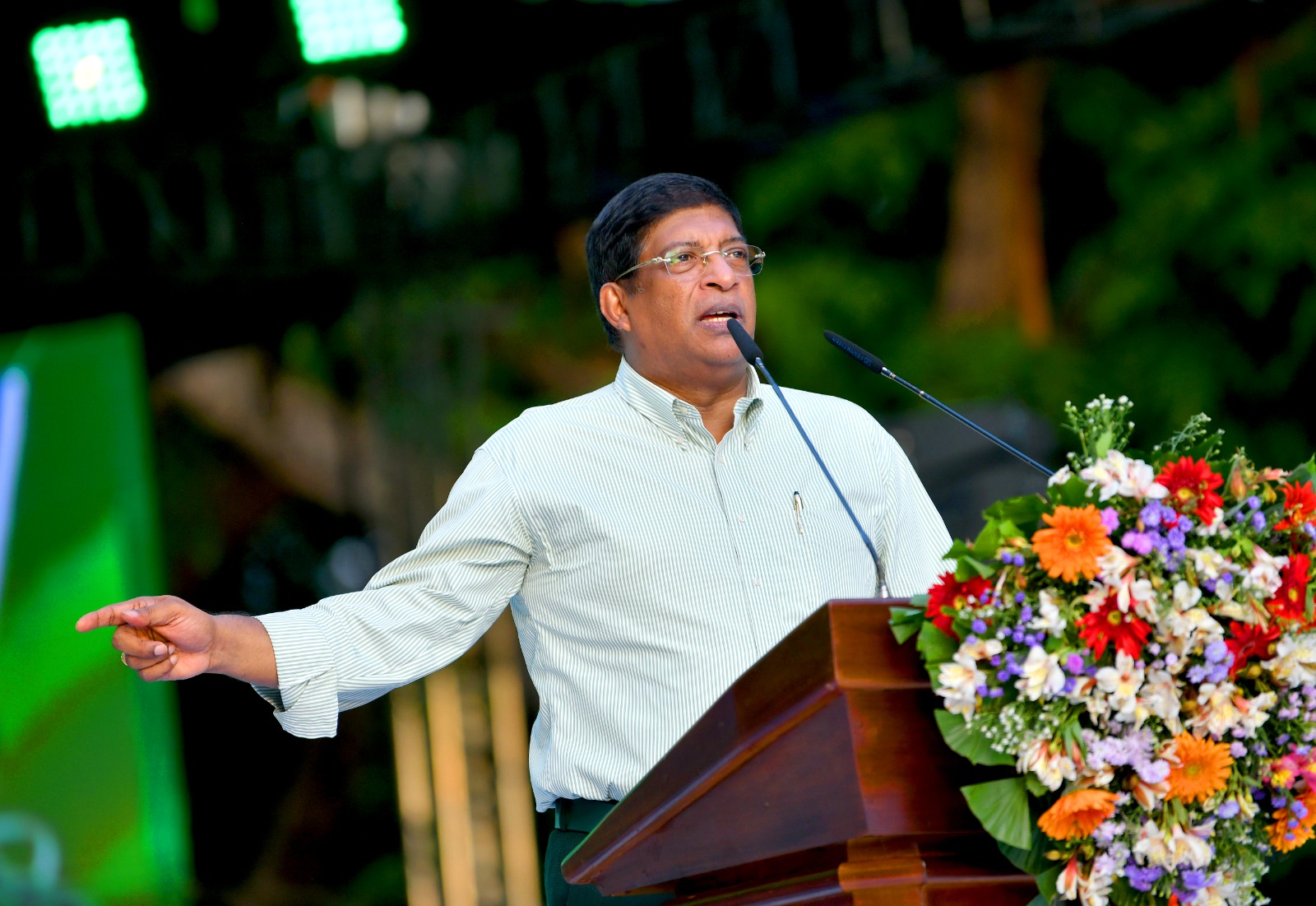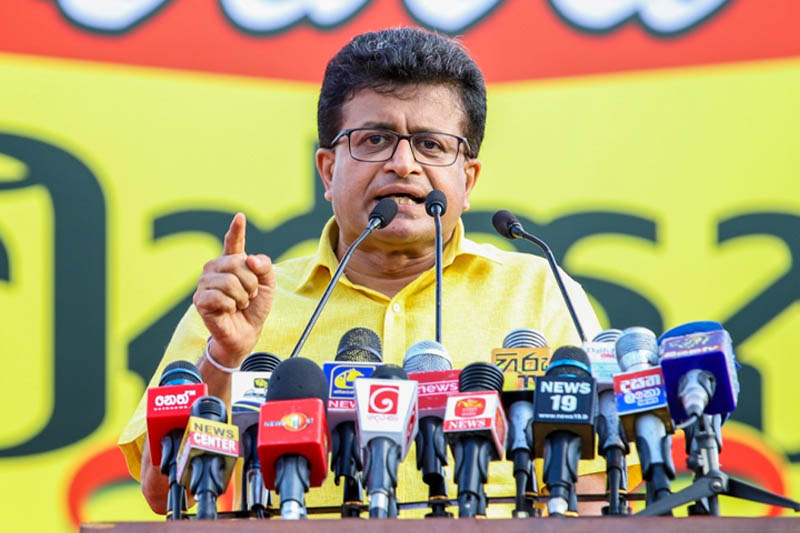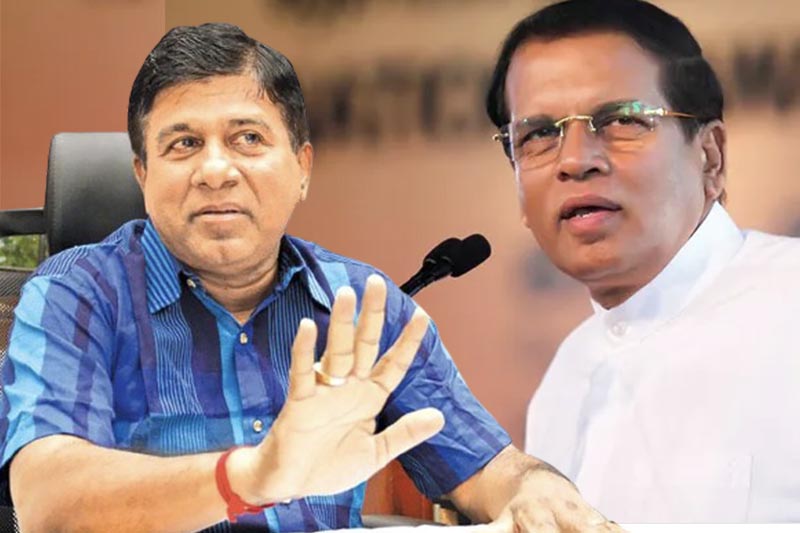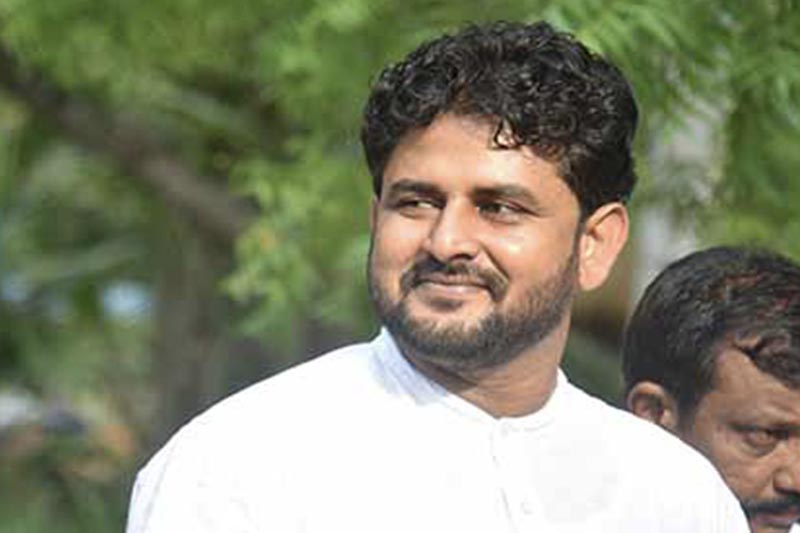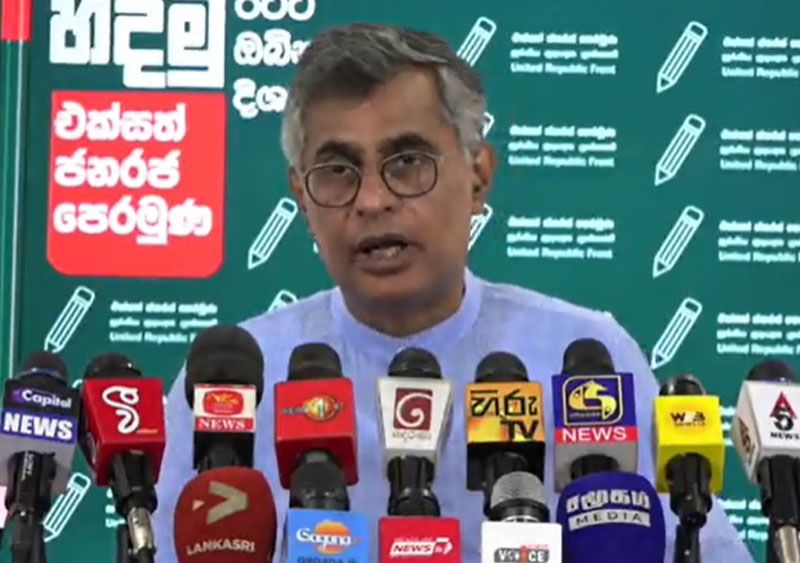The government’s commitment to macroeconomic stability and fiscal discipline is starting to bear fruit with stabilising the economy and easing exchange rate pressure while inflation is on a downward trend.
These progressive measures of the fiscal and monetary authorities will prompt the International Monetary Fund’s (IMF) staff team now in Sri Lanka to reach staff-level agreement on economic and financial policies that could support the approval of the first review of the EFF-supported program.
This was stated by former finance minister Ravi Karunanayake who spearheaded the fiscal and monetary authority efforts to secure a USD 1.5 billion IMF loan package in 2016 aimed to reduce the fiscal deficit, rebuild foreign exchange reserves, and introduce a simpler, more equitable tax system.
Sri Lanka is again under the microscopic eye of the International Monetary Fund’s (IMF) staff team currently reviewing the macroeconomic situation and policy environment in the country.
The team will assess the progress of the country’s economic recovery program supported by the US$ 2.9 billion Extended Fund Facility (EFF) during their stay in the island till September 27.
It comprises Quantitative Performance Criteria (QPCs), Continuous Performance Criteria (CPC) related to external arrears and Article VIII obligations, Indicative Targets (ITs), and the monetary policy consultation clause.
This agreement of the program progress is especially on debt restructure in accordance with the fulfillment of commitments stipulated up to June.
An IMF team will review this progress along with the program which kicked off in March 2023 and approve the second disbursement – which is now expected to be delayed till at least the end of October, Mr Karunnayake said.
The IMF review is likely to focus on commitments that were due by the end of June. Even with that large latitude, Sri Lanka is falling short on an important governance-linked commitment.
The establishment of an online fiscal transparency platform was due by end-March but is yet to become reality.
The present government has taken bold policy decisions and legislative measures paving the way for broader reforms to be implemented in the next four years under the EFF.
Sri Lanka has fulfilled 38 of the 57 IMF commitments due for August in its 17th programmer with the IMF. The progress on 11 commitments remains “unknown”, while eight are now classified as “not met”.
Sri Lanka is expected to achieve the requirement to gain a primary surplus in the Government’s budget, improve the gross official reserve levels by building net international reserves, and gradually phase out net credit to the government by the Central Bank, he added.
The IMF team will look into the non-accumulation of new external payments arrears on external debt which has to be monitored continuously by the authorities and any non-observance will be detrimental to the VIII of the IMF’s Articles of Agreement.
Further, the staff team will focus attention on government tax revenue, social safety net spending, cost of non-commercial obligations for fuel and electricity as well as on treasury guarantees.
Most importantly, the authorities have to ensure the achievement of objectives envisaged in attaining debt sustainability.
The progress on the debt restructuring will be assessed at the program review, with a view to completing debt restructuring within a reasonable time frame.
Therefore the Sri Lankan authorities will have to convince IMF staff on its progress achieved in domestic and external debt restructuring process,
Sri Lanka's approach to Domestic Debt Restructuring (DDR) stands out in its specificity and methodology as its strategy is centered on restructuring superannuation funds and Central Bank holdings.
According to an IMF staff report titled "Issues in Restructuring of Sovereign Domestic Debt," Sri Lanka is the only country that has adopted such a focused approach.
Sri Lanka should have a tangible agreement on debt restructuring in order to complete the first review of the program.
It is subject to approval by the IMF Executive Board for the disbursement of around $338 million, the second tranche of the $2.9 billion EFF by October this year.
The Government is making these policy changes as fast as possible, in order to build a highly competitive, export-oriented economy,” Karunanayake said, adding that it has to prevent economic hardships for large sections of the population.
He categorically stated that these economic policy reforms continued unabated even with change in government after elections as the country has faced the repercussions of such ad hoc changes in the past.
Citing an example of the historic mistake done following a change in government in late 2019, he noted that unsustainable policies were implemented with unviable tax reductions and exemptions and suspension of economic reforms pushing the country towards bankruptcy.
The fiscal and monetary authority has lost access to international capital markets since 2020. As a result, usable gross international reserves declined to $1.6 billion (less than 1 month of imports) as at end-2021 from $7.6 billion by end-2019.
With reserves depleted, the authorities suspended external debt service on April 12, 2022, and formally defaulted on their international sovereign bonds (ISBs) on May 18, 2022.
The rupee had depreciated by about 40 percent (in dollar terms) in 3 months since February 2022. The economy contracted sharply and inflation soared.
Following the authorities’ request in April 2022, IMF staff and the government authorities reached a staff-level agreement on a 48-month arrangement under the Extended Fund Facility on September 1, 2022.

